The morning I left for Beijing from Toronto, the Globe and Mail morning newsletter had just two lines and one cartoon on what was then only an odd little phenomenon from somewhere really far away. Back in January 2020, the term COVID-19 hadn’t even been coined yet. There was no pandemic, only a faint shadow growing in the East, whispers of a nameless something that barely registered for most.
I didn’t think much of it. A novel strain of the coronavirus from China that causes breathing difficulties and is potentially fatal — I’d seen it before, a more lethal version. As a teen, I lived through the SARS epidemic in Singapore. While I’ve never forgotten, I also no longer feared. Moreover, the reason for my trip was to see my ailing grandfather, whose health took a turn for the worse. The plague loomed, but I was consumed by thoughts of death and sickness of an entirely different sort.
I did not expect that a lot can happen when you’re in the air for 14 hours without internet. While I was on the plane, China unprecedentedly quarantined the entire epicentre city of Wuhan, the announcement made just hours before it took effect. The death toll was then 17. A woman from Wuhan posted on Chinese social media, “Now we are lambs who will still be slaughtered, and we can only leave our fates to the heavens.” I arrived to a state under siege.
In the ensuing two weeks, as the western world still stood unmoved, I saw the land of my birth descend into a full-blooded, into-the-valley-of-death-rode-the-six-hundred alarm. Being caught in the middle of that is an experience I wish only on enemies, but it is also a memory I will never forget. They say it is only in crisis that we show who we truly are. Adversity begets insight. Lockdown and plague was both a window into the soul of China and a premonition for the rest of the world, even if I did not know that at the time. And above all, for someone with family spread around the world, I cherish any moments together, and I know that trip, taken just before Chinese New Year, was possibly the last time I would see my grandfather.
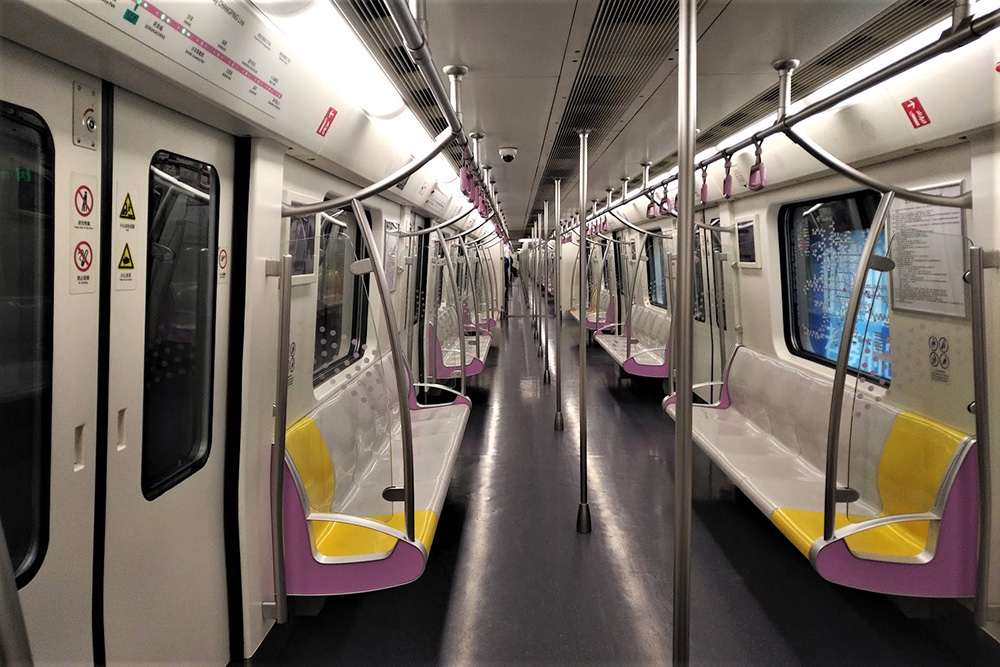
My grandfather, my yeye, was born in 1938, just a little after the Japanese invasion of China. In primary school he met my grandmother, who came from a considerably wealthier family that made its money producing preserved vegetables, or Chinese pickles. My grandmother was born a year earlier, and as a baby during the war, she once cried so loudly while the family was hiding from Japanese soldiers that the adults almost killed her to save the wider group.
Another war later and under a different government, my grandmother became a chemist, and my grandfather, the first Lou and the first person in his neighbourhood to go to university, ended up a college physics teacher. They lived in Shijiazhuang, about 300 kilometres south of Beijing. In retirement, both elders have good pensions, their lives mirroring that of the modern China alongside which they grew up — good fortune and prosperity, but born from conflict and turmoil.
My grandfather, however, a lifelong smoker who also loves fatty pig intestines, got to enjoy his golden years for only so long. Beginning with a stroke in the 2000s followed by a botched angioplasty procedure meant to treat narrowing blood vessels, he has been steadily fading in both body and mind. For years, he could barely recognize anyone and hardly ever spoke or moved. Then in late 2019, everything got a lot worse.
When I finally arrived at the Shijiazhuang seniors’ residence in January 2020, along with my Singapore-based parents and Beijing uncle, I was caught rather speechless. It was one thing to hear about my grandfather’s condition from my father. Quite another to see it directly. When I last saw him in early 2019, my grandfather could stand if supported, swallow mushy food, and even arm-wrestle me, although not particularly well. Now, my grandfather was too weak to even sit in a wheelchair. Or sit anywhere. He just lay in his white-metal bed, his hairless limbs leathery from a lifetime of wear, yet thin with disuse. I don’t think he knew or cared much about the death that spiralled out of Wuhan.
It was Chinese New Year’s Eve, one day after I arrived in China. The plan had been to say a quick hello and go back the next day for a full visit, but plans are nothing when pitted against chaos. The next day, while my family and I were there for the second time, the residence banned all visitors and ejected us. Our timing was terrible. But I took some solace in the fact that if my family and I had arrived in China just a day or two later than scheduled, I would not have been able to see my grandparents at all.
The day after that was the second of Chinese New Year, traditionally the day married daughters are supposed to return to their maiden homes. My father’s older sister, who still lives in Shijiazhuang, had planned to visit my grandparents at the seniors’ residence, but that was obviously not an option anymore. Instead, our extended family had a hotpot lunch at an apartment my grandparents own, a short distance from the seniors’ residence.
My grandparents never actually lived in that apartment. They had lived in the previous five-storey, elevator-less building that stood in its place, whose plumbing could not handle toilet paper, having been built just a year after the founding father Mao Zedong died — which precipitated a turning point of sorts. The ensuing decades saw massive economic reforms in China. Shijiazhuang’s metropolitan area quadrupled in population to four million and gained both a subway and an airport. A construction company tore down my grandparents’ building and gave them a new apartment in a 28-storey tower whose lift automatically punches in your floor when swiping the key fob, but which also features screens full of loud, repetitive advertisements.
The insides of the apartment, though, were little changed. All my grandparents’ old furniture was still in place. In between talk about the virus and lockdown and what we were going to do, my father proudly showed us the little wooden chair that as a child he had insisted my grandfather buy for him because my aunt had one. It still bore my father’s name at the bottom.
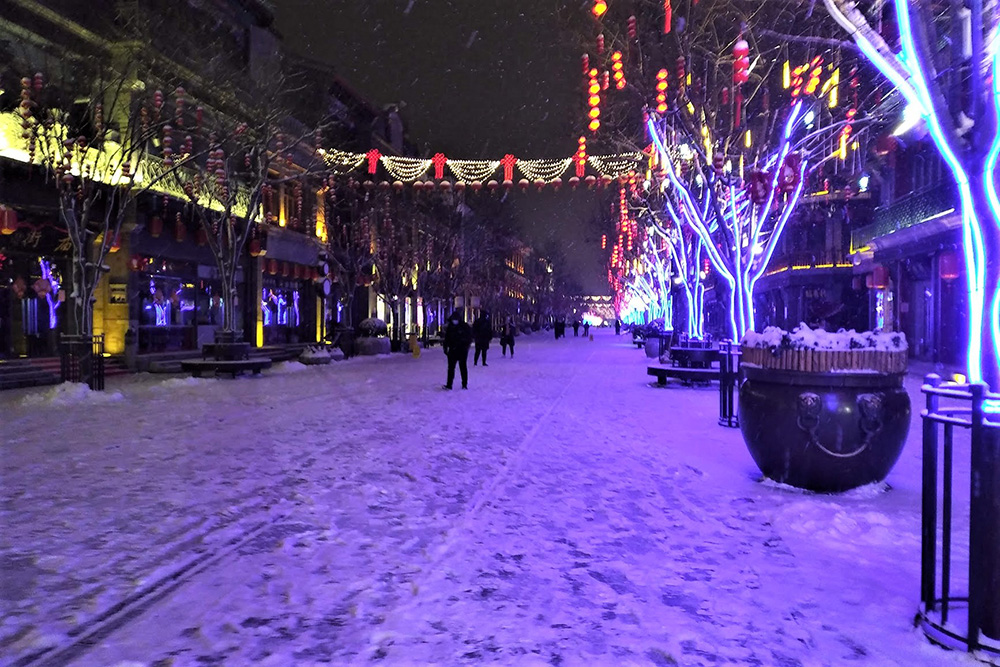
Chinese New Year, also called the Spring Festival, is based on the lunar calendar, the cycles of the moon. The exact date of the celebration is thus different every year, although it is usually in January or February, when the new year is marked by a new animal zodiac sign. It is a big deal. The whole of China is given a week-long public holiday, and in a country of 1.4 billion people, that means peak travel. All sorts of tickets sell out quickly. The New Year migration is the sort of journey that every Chinese person knows, a shared experience regardless of social class, like a pilgrimage to Mecca. The fact that the virus happened now — and the ensuing lockdown across the country — was a cruel joke. Considering the likely origins of COVID-19 in flying rodents, the fact that this is the year of the rat also makes for a bitter punchline.
My family left Shijiazhuang and holed up in my uncle’s apartment in Beijing to ride out the remaining days before we were scheduled to leave China. We might not have been in Wuhan itself, but things were only marginally better. To leave your apartment, more often than not, you needed to register and get the equivalent of a permission slip from security. To an outsider, it may be unclear where the building management gets that authority. But this is China, where historically, the state owned and planned everything and the concept of private ownership was nonexistent. The post-Mao reforms have drastically changed that status quo, but the past lingers. For many people, their apartments are still tied to their employment. It remains a country where many things link back to the government. Beijing, densely urbanized, is also a city where few people live in single-family houses, and where even detached homes are usually part of some sort of gated compound. The so-called neighbourhood committees looking over these compounds are effectively extensions of the local authorities, which derive their power from the state. Big Brother is not exactly in your bedroom, but he’s close by.
Everything felt a little dystopian. Since the leader Mao’s death in 1976, China’s rapid development from a backwater to the world’s second-largest economy has also meant an evolution in the government’s strength and reach. That is, a country of peak surveillance, where everything is recorded and linked to everything else, and there is only a faint shadow of the idea of personal privacy. The pandemic had brought all of that eerily to the fore, showing just how much oversight the government has over its people.
We tried to hold on to some normalcy. In the beginning, before all the shops closed, my family and I managed to have one meal outside. We had a main course of zhajiangmian, dark, soybean-paste noodles with slivers of pork belly, and a brownish stew of the fatty pig intestines that my grandfather likes, noted for its slight sourness. A man at a table behind us had the same stew and a small bottle of domestic rice liquor. He was playing popular Chinese music from his phone and was obviously drunk, quickly becoming incoherent and rude to the waitress, although not to the point that it required intervention. He was the only other customer in the restaurant, which had checked our identification documents to make sure we were not from the epicentre of Wuhan and its province of Hubei.
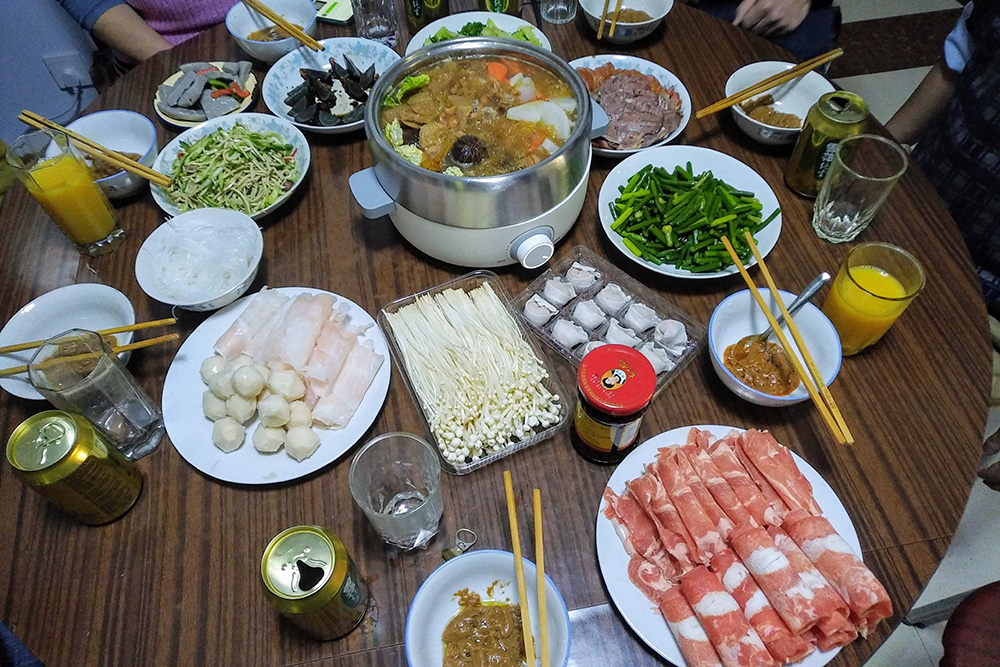
My parents left China three days later to return to Singapore, as scheduled. My uncle and I saw them to the airport, but we didn’t get out of the car. I can’t remember whose idea it was, but the rationale for remaining in that black BMW was pandemic-related: the less interaction with strangers, the better. It was thus a subdued goodbye, said between car seats. My uncle and I did, however, stay in the car in the parking lot until my parents texted to say they’d cleared airport security and got to their gate. In these uncertain times, you never know what can happen.
My own flight out of China was in a week, for I originally had wanted to spend more time with my grandparents. Now I spent my final days in China in my uncle’s apartment, just the two of us, mostly reading and writing. My uncle likened our experience to being in prison, and I took that as more than hyperbole, for the man is a lawyer and has visited Chinese detention facilities many times to see clients.
By then, early February, the world had more than 17,000 cases of the coronavirus, although 99 per cent of them were in China, where at least 360 had died. Beijing, which had more than 200 infected, had seen its first death a few days earlier. It was still the early days, before the concept of physical distancing had entered the zeitgeist, when the world outside was still carrying on more or less as normal.
I had had a rare window into what had become a surreal and bizarre realm, an experience, firsthand, of how things got progressively worse, how in the face of the virus, restrictions on the way people lived their daily lives became increasingly heavy, their ability to see friends and family limited. I would later recognize that as a sign of what was to come for the rest of world.
At the time, though, as I left China to briefly join my parents in Singapore, as long planned, all I felt was a certain uneasiness I could not recognize. It was like noticing for the first time the sharp smell of ozone before a lightning storm, a sensation that is foreboding, yet utterly unfamiliar. I tried not to think about it. Like when I got kicked out of the seniors’ residence, I tried to see the positive amid the bleak. Among other thoughts, I filled my mind with memories of that hotpot meal at my grandparents’ apartment on the second day of Chinese New Year.
With chopsticks, we dropped raw ingredients of thin beef and lamb slices, dumplings, mushrooms, vermicelli, and meat balls into a communal pot of boiling abalone soup, eating as we cooked. We also had garlic stems, sliced tofu, century egg — its flavour derived from hydrogen sulfide and ammonia, truly an acquired taste — and a sort of glutinous cake specific to Shijiazhuang, which only my father likes. We washed it down with a brand of lager called Snow.
It was a glorious meal for everyone except the couple that owned the apartment, my grandparents who were living at the seniors home. There, my grandfather lay motionless in his bed, a state in which he would remain for the rest of the pandemic. My grandmother could join us only via video call. Still, with my aunt’s entire family present, my uncle, my parents and me, it was the closest thing to a reunion we had had in nearly 15 years. Nobody knew when the next would be. My grandmother wasn’t eating because it was before her scheduled time to do so, but she watched us through the entirety of the meal.
Adapted from 'Field Notes from a Pandemic: A Journey Through a World Suspended.' Copyright Ethan Lou, 2020. Published by Signal/McClelland & Stewart, a division of Penguin Random House Canada. ![]()
Read more: Coronavirus


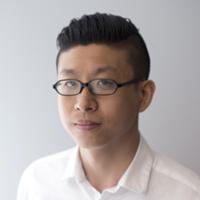
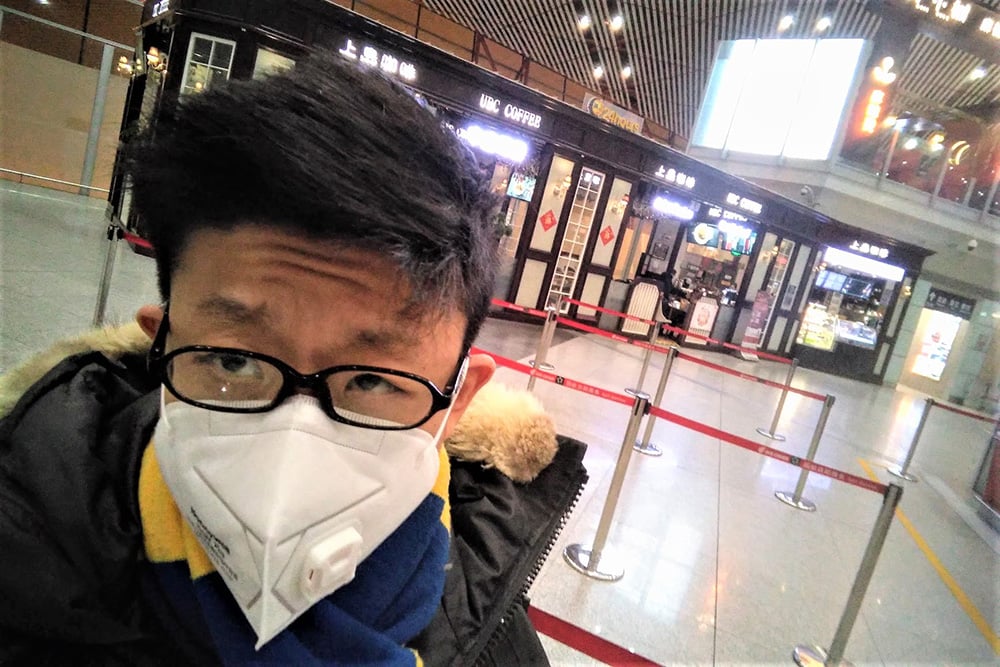












Tyee Commenting Guidelines
Comments that violate guidelines risk being deleted, and violations may result in a temporary or permanent user ban. Maintain the spirit of good conversation to stay in the discussion.
*Please note The Tyee is not a forum for spreading misinformation about COVID-19, denying its existence or minimizing its risk to public health.
Do:
Do not: